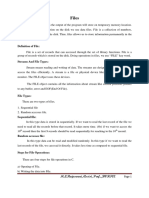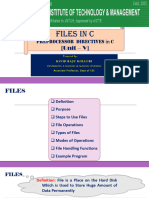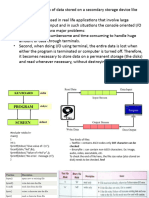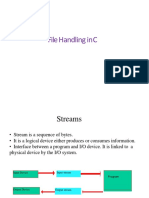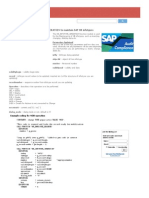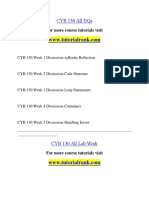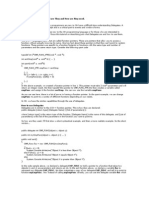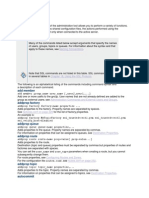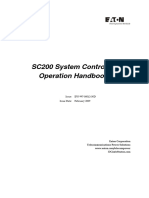0% found this document useful (0 votes)
12 views3 pagesFiles C
The document outlines the basic operations and types of files, including file opening modes and functions for file operations in programming. It also explains user-defined functions (UDFs), their types, and provides example programs demonstrating file creation and function usage. Key concepts include file handling functions like fopen, fclose, and user-defined function structures.
Uploaded by
ranganadhCopyright
© © All Rights Reserved
We take content rights seriously. If you suspect this is your content, claim it here.
Available Formats
Download as TXT, PDF, TXT or read online on Scribd
0% found this document useful (0 votes)
12 views3 pagesFiles C
The document outlines the basic operations and types of files, including file opening modes and functions for file operations in programming. It also explains user-defined functions (UDFs), their types, and provides example programs demonstrating file creation and function usage. Key concepts include file handling functions like fopen, fclose, and user-defined function structures.
Uploaded by
ranganadhCopyright
© © All Rights Reserved
We take content rights seriously. If you suspect this is your content, claim it here.
Available Formats
Download as TXT, PDF, TXT or read online on Scribd
/ 3

